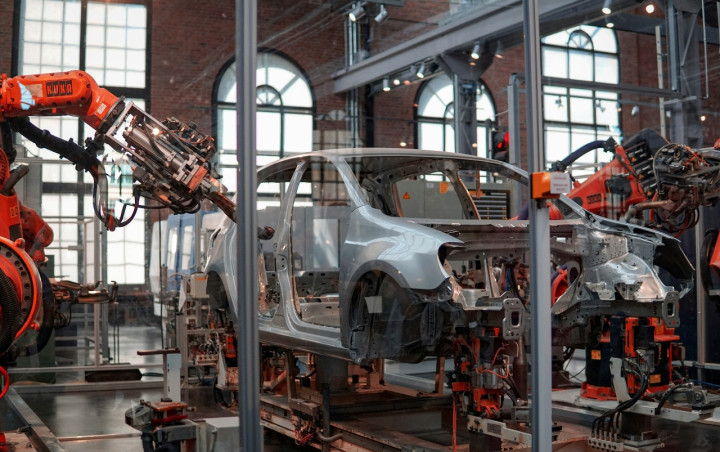Economic and industrial development
Attracting talent, business development and long term wealth creation.

Slovenia is strategically well positioned as a bridge spanning both Central Europe and the Balkans. It features solid economic fundamentals, with high added value manufacturing as well as a large services sector and a well educated population. GDP per capita is currently at 92% of the EU average but our economy faces several challenges, which we should try and address - from concentration around Ljubljana, to labour shortages and a lack of startups per capita compared to other EU member states (led by Estonia which launched several companies today valued over 1B€).
Volt Slovenija proposes:
Attracting business and entrepreneurs
Continue to create a startup friendly ecosystem by streamlining company creation and annual reporting similar to Estonia and creating a blue-card Start-Up visa program to attract non-EU founders to create their startups for certain sectors in Slovenia.
Simplify procedural requirements for company shareholder meetings to allow remote participation, representation and facilitate faster and easier changes to company structure.
Ensure all regions are well connected (both in terms of public transport and digitally) and support launching competence clusters and startup incubators.
Reforming the ZGD-1 to simplify and make it easier for companies to reward and attract employees by making it easier to issue options, vesting to new employees and reward good ones with a stake in the company. This would encourage profit sharing and commitment of highly skilled labour to stay at the company increasing productivity.
Skilled workforce
Introduce personal career training accounts based on the French Compte personnel de formation that allow (capped) tax-free contributions to be used for training and education programmes.
Attract skilled foreign professionals by unilaterally accepting academic degrees of selected professions, streamlining visa processes and providing relocation support. Fast-track residency options, language courses, and global recruitment efforts must increase Slovenia’s appeal as a talent destination because we are currently ranked 62/67 for attracting foreign high-skilled workers.
Business acceleration
Introduce a small business act similar to the United States that reserves 25% of public orders for small and medium sized businesses (SME) to groom them into becoming drivers of the Slovenian economy. Part of this would be to reform public tenders procurement processes ensuring more transparency and competition.
Copy the success factors of the German “Mittelstand” - successful SMEs that build the backbone of Germany’s industry - from dual education for a skilled workforce, clusters for research and engineering (like the bavarian automotive cluster), support for family-owned businesses and incentives to invest into innovation and long term growth.
Make a portion of investments (up to 30 %) into Slovenian venture capital funds and social entreprises tax deductible from the capital gains tax.
Implement the 28th regime (supranational, EU-wide) in Slovenia and insist on EU level for it to be a directive to allow companies to incorporate and work across the EU single market.
Growth through decentralisation
Invest into our transport and public transportation and digital infrastructure (outlined in separate sections) to create the connectivity between Ljubljana and its regions that business needs to thrive.
Ensure Slovenia becomes an entry port into Europe for transporting goods along the Ten T network and further increase the amount of goods transported by rail or maritime waterways towards matching the 40% of Switzerland.
(v4 11-2025)